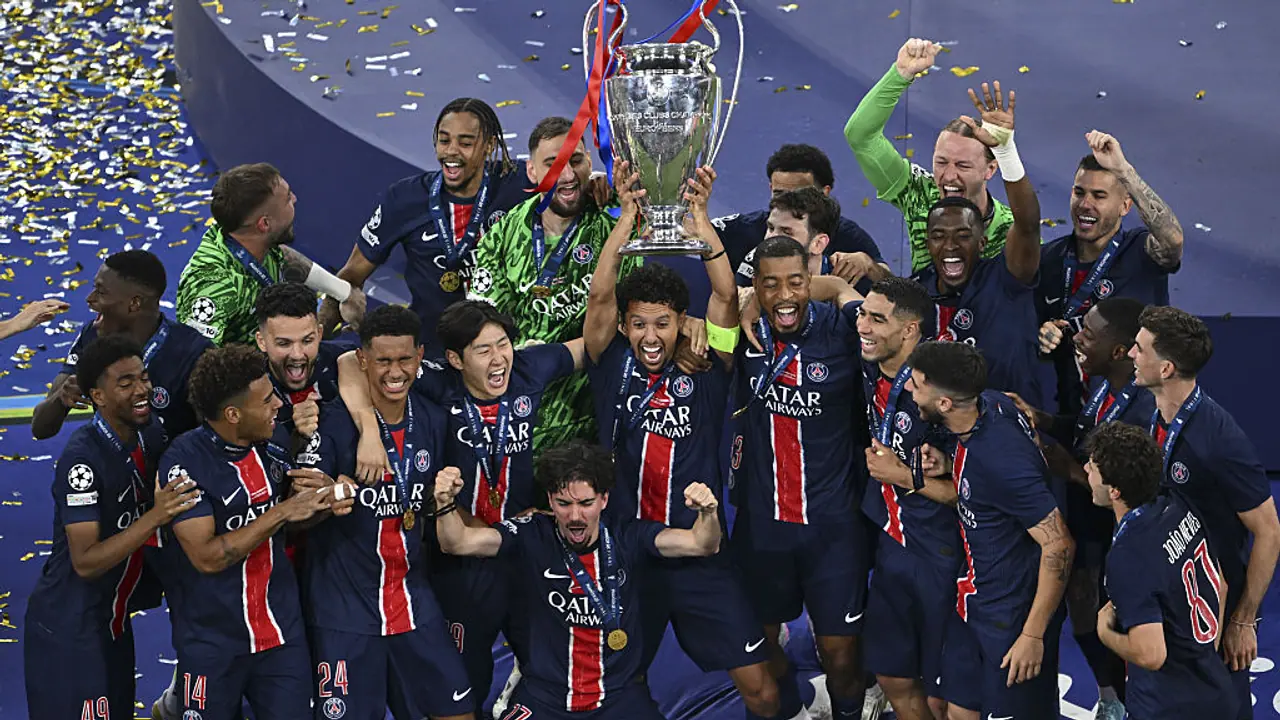Paris Saint-Germain finally clinch their first UEFA Champions League title under Luis Enrique, signaling the start of a potential new era of European dominance.
Fourteen years, 1.92 billion pounds, and countless false dawns later, Paris Saint-Germain (PSG) finally scaled the summit of European football. On a golden Munich evening that will long be etched in the memory of football fans, the French champions demolished Inter Milan 5-0 in the Champions League 2024-25 final at the Allianz Arena, marking a watershed moment not only in their club's history but potentially in the wider landscape of European football.

The victory was not just an emphatic statement of dominance—it was a moment of metamorphosis. For a club long synonymous with glitz, glamour, and the ghost of unmet expectations, this felt like the rebirth of something more authentic. PSG, at last, played like a football club, not a fashion label. Credit for that shift goes, almost entirely, to Luis Enrique.
The End of the “Bling-Bling” Era
Once mocked for assembling superstar squads that underachieved under the weight of their own egos, PSG have always flirted with greatness but never quite held it. Lionel Messi, Neymar, Kylian Mbappe—household names who dazzled with their boots and Instagram feeds, but not with a Champions League medal at PSG. The "bling-bling" era defined by Qatari wealth and marketing triumphs is now officially over.
In its place, Enrique has forged something different: a unit. A side not built around individual flair alone, but a collective ethos. On Saturday night in Munich, that ethos was irresistible.
The Masterstroke of Management
Luis Enrique’s fingerprints are all over this PSG side. Tactical flexibility, unshakable discipline, and supreme confidence under pressure—qualities not often associated with the Parisian giants—were on full display. He made the bold call to start 19-year-old Desire Doue over Bradley Barcola, and it paid dividends as the teenager delivered a masterclass: two goals and one assist in a Champions League final.
Doue’s emergence, along with stars like Vitinha, Kvaratskhelia, and Ousmane Dembele, signals a new dawn. Gone are the days of chasing galacticos for marketing clout. This is a PSG team sculpted with purpose and vision.
Enrique becomes only the second manager in history to win the European treble with two clubs—having previously done so with Barcelona in 2015. But this win, coming after personal tragedy with the loss of his daughter Xana, held far deeper emotional weight. When PSG fans unveiled a tifo showing Enrique planting a PSG flag with Xana watching over, it felt like football’s most human story in a night of tactical perfection.
Tactical Supremacy: A Lesson for Europe
Against Inter, PSG didn’t just win—they dismantled. From Achraf Hakimi’s opener in the 12th minute to Senny Mayulu’s emphatic fifth late on, the French side were ruthless, calculated, and poetic. Inter never stood a chance. While they had possession spells and a few corners, Donnarumma’s gloves remained mostly untroubled.
It was a coronation, not a contest. The pressing, the transitions, the individual brilliance—all orchestrated like a symphony by Enrique on the touchline. Inter’s normally disciplined backline looked like statues against PSG’s fluid movement.
The biggest compliment? This didn't even feel like PSG's ceiling.
Can PSG Dominate the Next Decade?
This victory is not an end but a beginning. With a core of emerging talent, a world-class manager, and the financial backing that has never wavered, PSG have every ingredient to dominate Europe for years to come.
But sustaining success in Europe requires more than just one brilliant night. The real test begins now. Can Enrique keep the squad hungry? Can PSG navigate the internal and external pressures that come with being champions? Can they avoid the fate of Chelsea post-2012 or Inter post-2010—teams who touched glory only to descend into decline?
Unlike his predecessors, Enrique has shown the maturity, humility, and clarity needed to lead a dynasty. If the club keeps faith in this model—eschewing vanity signings for players who fit a system—then Europe’s elite might need to prepare for a Parisian era.
The Legacy of One Night in Munich
Munich has witnessed many champions, but on Saturday, it crowned a club reborn. The Allianz Arena, bathed in Parisian blue, was not just the site of a final—it was the launchpad of a new footballing order.
Luis Enrique looked skyward after the final whistle—not to the floodlights, but to a memory, a spirit, a daughter whose loss has shaped his every step since 2019. For all his tactical genius, it was this moment—raw, real, deeply human—that defined the night.
PSG are finally Champions of Europe. But the story doesn’t end here. Under Enrique, it may be just getting started.


